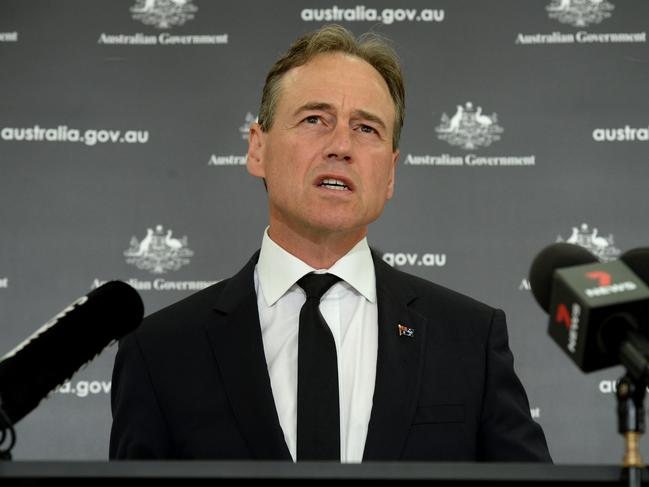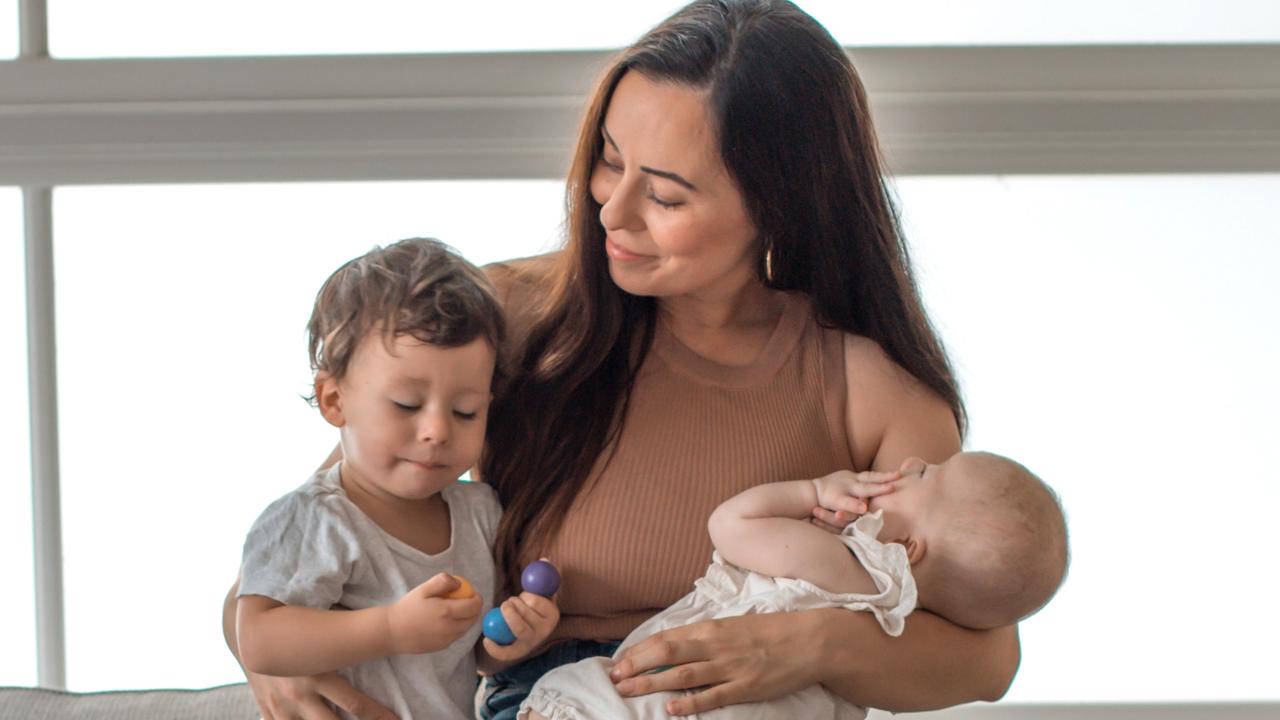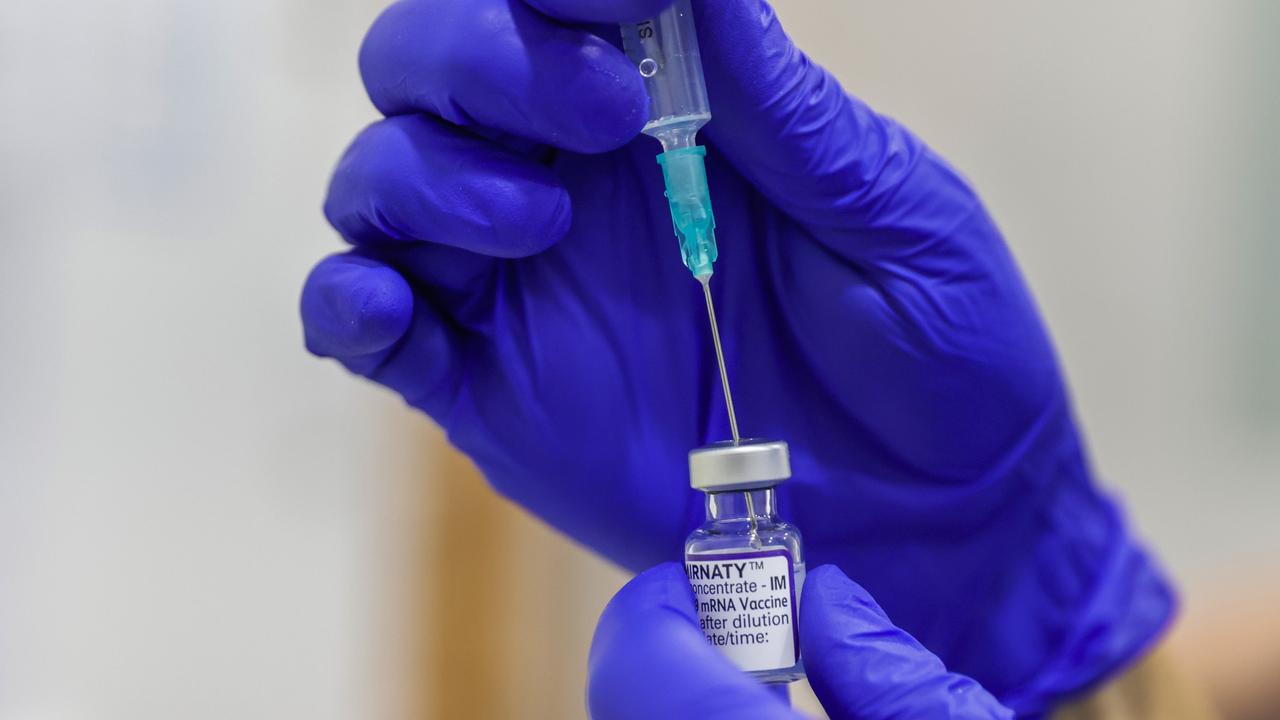Coronavirus NSW: Luna Park Sydney fined over NYE party COVID breach
A New Year’s Eve party at Sydney’s Luna Park has led to the park being fined for breaching the COVID guidelines. See all the latest here.
NSW Coronavirus News
Don't miss out on the headlines from NSW Coronavirus News. Followed categories will be added to My News.
Management at Sydney’s Luna Park have been slapped with a fine over a New Year’s Eve party that saw crowds of people breaching Public Health Orders.
Earlier this month, footage emerged of the event showing guests mingling close together, standing while dancing and crowding around the foreshore to watch the midnight fireworks.
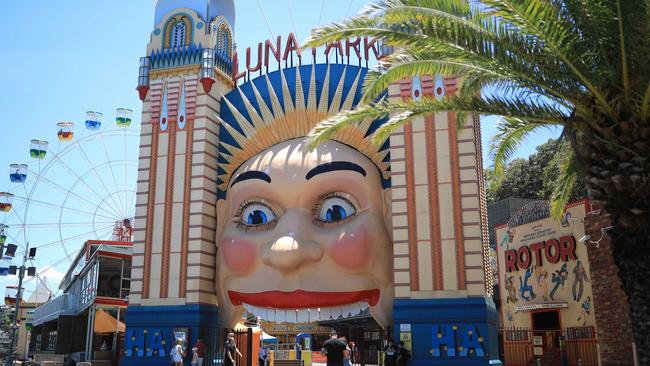
Police commenced an investigation after being tipped off to the footage and subsequently fined the company’s secretary $5000.
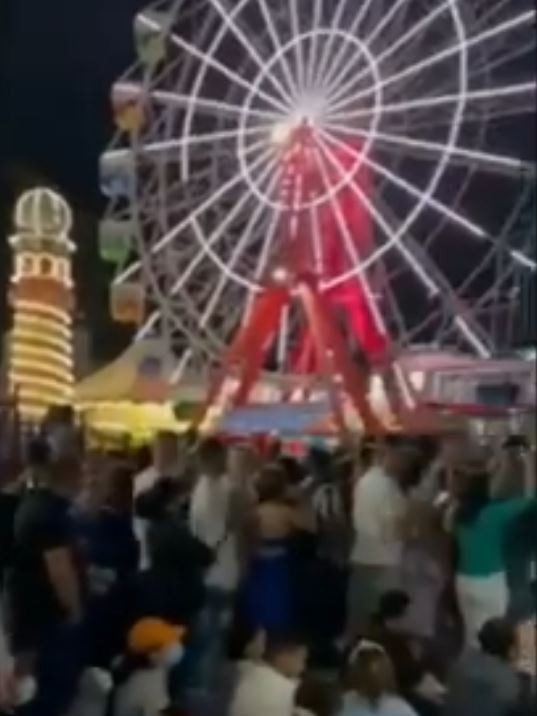
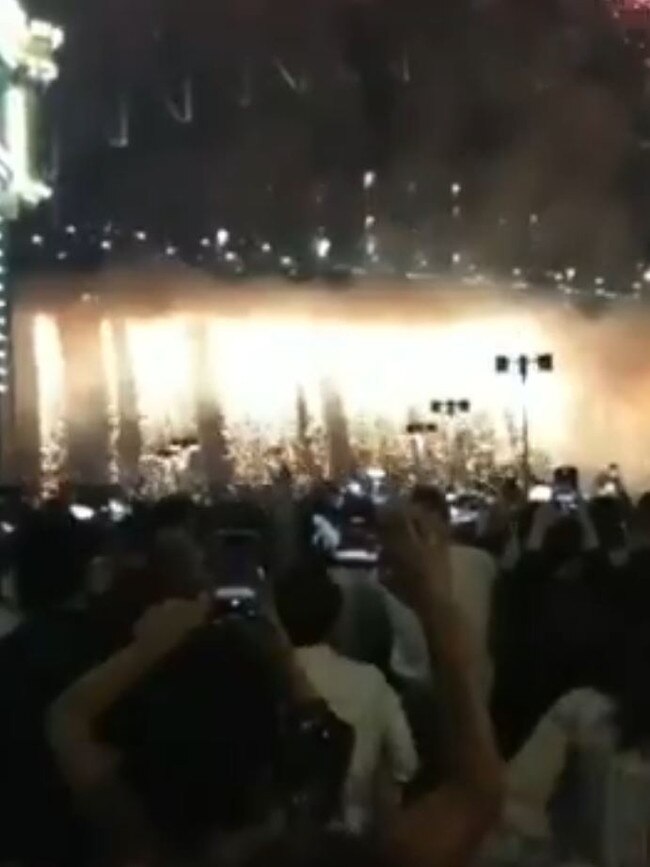
Guests who attended the party have since slammed event organisers, with many stating that they thought the park was overcrowded and that COVID marshals had lost control.
Tickets to the event cost $150, which included access to rides like the Ferris Wheel.
Partygoers in the crowd included people of all ages from teenagers, to families, seniors and children.
14 SYDNEY SUBURBS ON ALERT
Premier Gladys Berejiklian has called for the cap on international arrivals to be based on each state’s population size from next month.
While the weekly intake of some states including NSW has been halved amid greater concerns about the mutant UK strain of the virus, the number of travellers allowed in each week will return to normal on February 15.
Ms Berejiklian said from then she “would like to see a model … which is based on the population size” of a state.
NSW currently takes more returned travellers every week than any other state or territory.
The comments came after QLD Premier Annastacia Palaszczuk said she wants to see a potential change to how people are arriving in Australia.
“I think we need to immediately look at the way in which we are handling people coming into the country, international arrivals, and also, too, looking at the quarantine hotels that they are going into,” Ms Palaszczuk said.
The NSW Premier has previously indicated that she doesn’t want to see Australians overseas blocked from coming home.
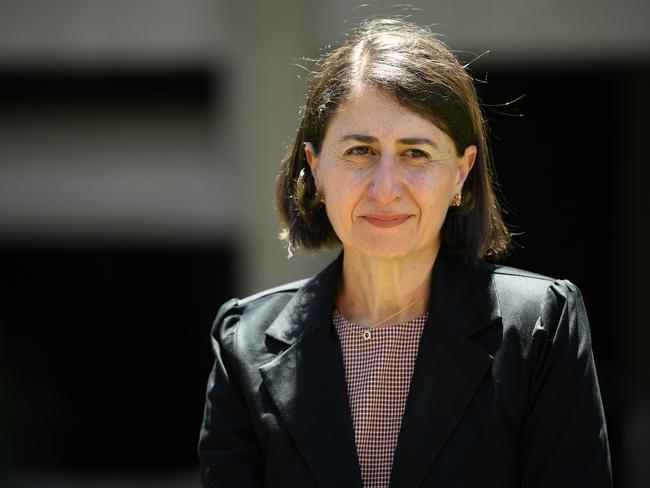
Ms Berejiklian said people must assume mutant strains of coronavirus will become the more dominant disease going forward.
She said a planned month-long slowdown of international arrivals would give NSW Health time to “assess what the variants of the disease are doing”.
The realisation that a Brisbane hotel worker had caught the UK strain from a returned passenger in quarantine caused the Queensland government to shut down the city over the weekend.
LABOR CRITICISES QUARANTINE SYSTEM
State Labor has criticised Ms Berejiklian for declaring our quarantine system has “protected our community from the virus”.
The Avalon outbreak and Berala cluster both stemmed from leaks in the state’s border operation.
“For the Premier to suggest that hotel quarantine has saved NSW from the pandemic is by definition inaccurate as every single case has come from a hotel quarantine blunder or the Ruby Princess,” Acting Labor Leader Yasmin Catley said.
14 SYDNEY SUBURBS ON ALERT
Fragments of COVID-19 have been identified in the sewage system in Sydney’s hills district prompting health officials to issue an urgent alert.
Resident across 14 suburbs have been told to monitor for symptoms and get tested if they occur.
The sewage surveillance program detected fragments of the virus in the treatment plant in West Hornsby which serves Glenorie, Wahroonga, Thornleigh, Pennant Hills, Cherrybrook, Castle Hill, Galston, Dural, Westleigh, Glenhaven, Waitara, Hornsby, Normanhurst and West Pennant Hills.
Everyone in these areas has been told to watch for symptoms and get tested if they appear.
It comes after one new local COVID case was recorded in NSW in the 24 hours to 8pm last night — a child who is a household contact of a previous case linked to the Berala cluster.
More than 20,000 tests were recorded in the latest period, up from the 14,000 the previous day.
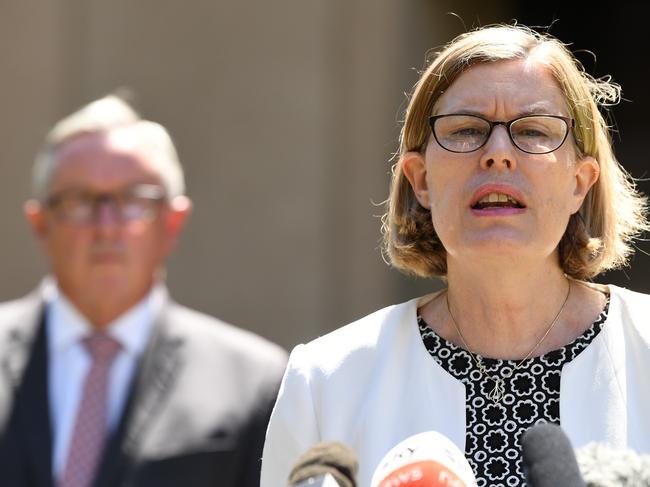
Six new cases were also recorded in hotel quarantine overnight.
Amid low daily case numbers, chief health officer Kerry Chant on Wednesday declared that it could take between three to four weeks to “mop up” undetected chains of transmission from the Berala and Avalon clusters.
“Please do not become complacent with the lower numbers, it’s almost a time to redouble our efforts, as we try and get to no community transmission as soon as possible,” she said.
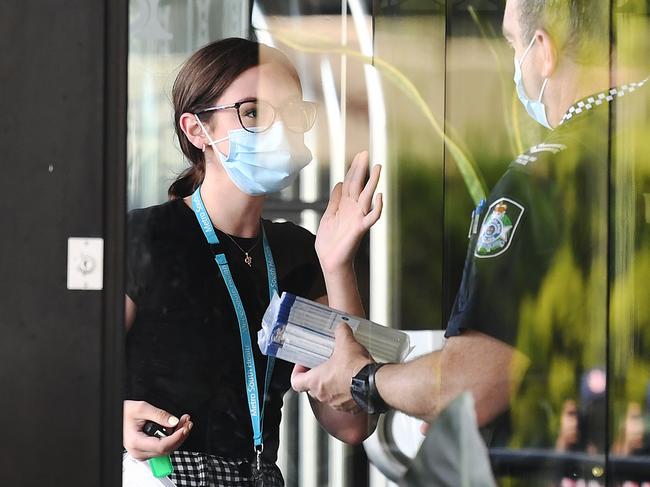
QLD HOTEL EVACUATED FOR UK STRAIN
Six cases of the highly infectious UK strain of COVID-19 have now been linked to a Brisbane hotel quarantine facility, leading authorities to evacuate the hotel to prevent further outbreaks.
While Queensland recorded no new cases of locally acquired COVID-19 overnight, Premier Annastacia Palaszczuk said the Hotel Grand Chancellor in Spring Hill, Brisbane, was now considered a cluster.
It comes after a hotel quarantine worker contracted the virus and infected her partner, as confirmed on Tuesday.
The strain had already been detected in a traveller who had returned from the UK on December 30, and then his partner. Two people also tested positive to the strain in the hotel on Tuesday after returning from Lebanon.
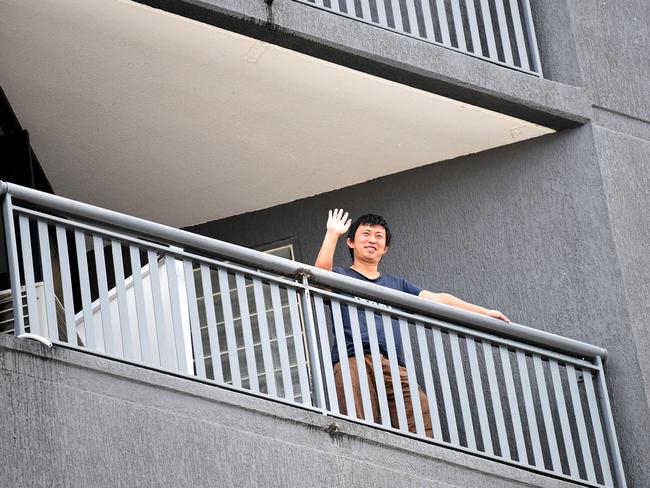
Ms Palaszczuk said “as a precaution”, the remaining 129 guests were being moved to other hotels, 226 people who worked in the hotel since December 30 will go into quarantine, and 250 quarantined guests who had left the hotel after December 30 would also quarantine for 14 days.
Queensland chief health office Jeannette Young said anyone who had been in the hotel since December 30 onwards, whether they be staff, ADF, police, health, services workers and maritime workers were being contacted to get tested and quarantine for 14 days from when they left the hotel.
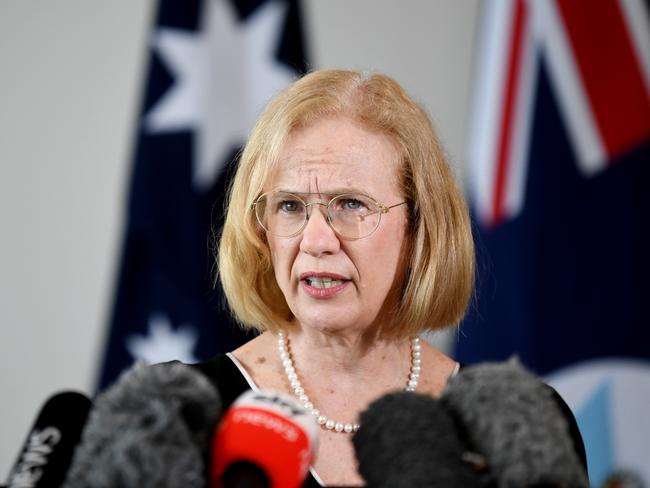
“The safest thing to do, is to move all the guests out of the hotel to other hotels, immediately,” Dr Young said. “That has now started. So all those 129 remaining people in that hotel will move. they will get tested.
“So far it‘s floor seven … and that’s where it has spread.
“We can’t work out exactly what happened and we are struggling to see how it got out.
“Police are leading the investigation.”
VACCINE FEARS UNFOUNDED, SAY EXPERTS
Australian government medical experts say the AstraZeneca vaccine will provide herd immunity and save lives with data showing it protects against severe illness in every case.
Health Minister Greg Hunt has dismissed calls from some epidemiologists for the government to halt plans to use the vaccine and instead only roll out the Pfizer or Moderna options.
The confusion has stemmed from trials showing AstraZeneca has a 62 per cent efficacy rate, but Mr Hunt said this would create herd immunity and was not the final data for the jab.
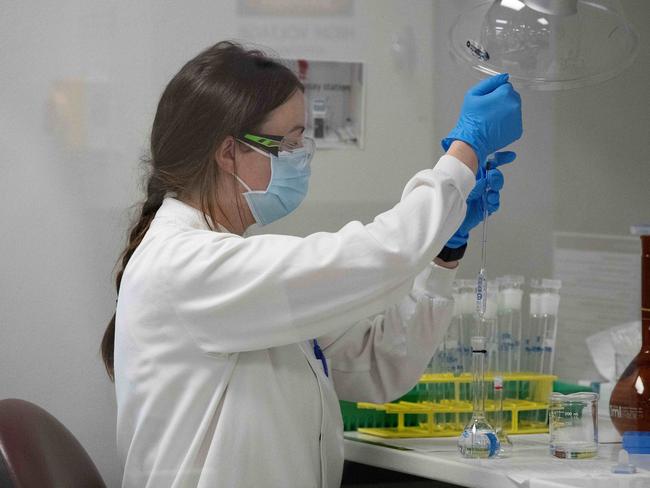
Mr Hunt said the government was listening to its medical experts, who recommended the AstraZeneca vaccine option.
“They’re the ones choosing the vaccines, and they’ve chosen on the basis that an mRNA vaccine has never, ever been done before for anything,” he said.
“The advice again, and I spoke with the Chief Medical Officer only (Monday) night, is that this is what the medical expert panel of Australia, the one that has helped keep us safe, has recommended.”
Mr Hunt said the requirement to store the Pfizer vaccine at minus 70 degrees celsius presented “challenges” for its rollout.
The Oxford University/AstraZeneca vaccine is inexpensive to make and can be stored at refrigerator temperature — a major advantage over the messenger RNA vaccines being developed by Pfizer and Moderna.
The interim analysis, published in The Lancet medical journal in December, identified no severe coronavirus disease or hospitalisations in pooled results from the 11,636 adults vaccinated in the United Kingdom and Brazil.
Of the 11,636 adults, 131 had symptomatic COVID-19 more than 14 days after the second vaccine dose, including 30 of 5,807 in the COVID-19 vaccine group and 101 of 5,829 in the control group, indicating a vaccine efficacy of 70 per cent.
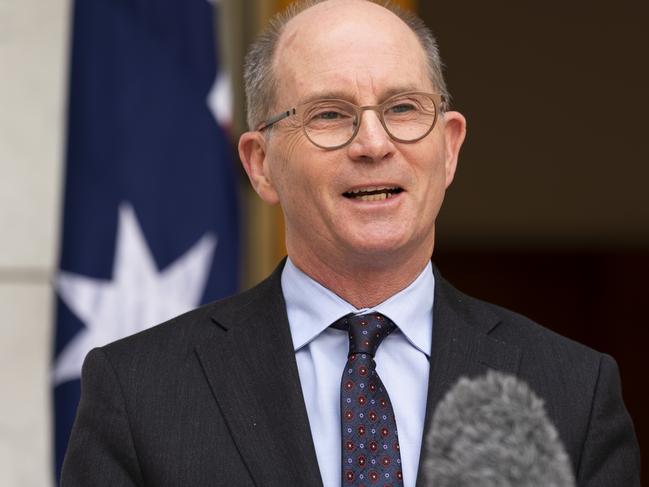
CMO: ‘LISTEN TO THE EXPERTS’
Australia’s Chief Medical Officer Professor Paul Kelly said he was “concerned” people were suddenly creating “controversy” based on interim trial results published more than a month ago.
“I would urge people looking at this to look at the full information, not just pick one figure from that study,” he said.
“The pooled (efficacy) result was 70 per cent. In one group, it was 90 per cent.”
Prof Kelly said the government’s vaccine experts and the Therapeutic Goods Administration had “much more information” to make their decision than a “five or six page article published in the Lancet”.
“They’ll have tens of thousands of pages … of information,” he said.
“All the way along we have been guided by the real medical experts in relation to immunisation, our Australian Technical Advisory Group on Immunisation.
“They’re hand-picked experts on these matters, they’ve held us in very good stead for many, many years.
“So people should listen to those experts. We’re listening to them. I’m listening to them. And that’s what we’ll be guiding our decisions in the coming months.”
Prof Kelly said even if the final AstraZeneca figure was 62 per cent, it still “definitely exceeds” the World Health Organisation’s goal of over 50 per cent effectiveness.
Infectious diseases expert Professor Peter Collignon said Australia’s COVID-19 vaccination strategy will save lives and make a major difference in the community.
“What we have got now is much more effective than the influenza vaccine and none of these people is saying don’t roll that out. They are only 30 to 50 per cent effective. This will save people who otherwise would have died if they did not get vaccinated,” he said.
“We do not want to rush it out, we want to make sure the data is there. But, I would be all for rolling out this vaccine because it is much better than anything that is going to be available for quite a while. Things will improve in time.”
VIC RECORDS ZERO CASES
Victoria has recorded its seventh straight day of zero new locally acquired cases of coronavirus, after more than 17,000 people were tested in the past 24 hours.
The Department of Health and Human Services also revealed three new infections in returned overseas travellers in hotel quarantine.
It comes as the state government is under increasing pressure to reclassify parts of its new travel permit system amid confusion and frustration in border communities.
More than 54,000 permits were issued by Tuesday afternoon after the new system failed to launch on time on Monday night. Frustration continued for residents near both the NSW and South Australian borders, who said the system was an overreach.
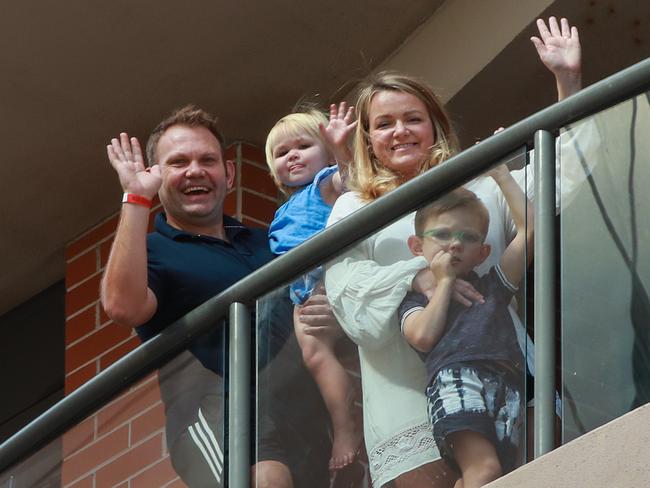
‘CRUELTY-FREE’ SYDNEY TOP PICK
Waving and smiling on their 27th floor balcony, the Styles family is happy to be in NSW, where humanity has prevailed over cheap shots and border cruelty.
More than 117,000 people just like Richard Styles, his wife Grainne and their children Clodagh, 2, and Paddy, 6, have come through the state’s hotel quarantine system since the beginning of the COVID-19 pandemic.
They are relocating from Singapore to Melbourne but chose to land in Sydney because their children would have access to a bigger apartment, a balcony and fresh air.
Up to 40 per cent of people flying into Sydney each day call another state home but with tighter caps and border closures elsewhere, they have turned to NSW for help.
Premier Gladys Berejiklian asserted her cruelty-free approach to borders on Monday after an attack by Western Australian Premier Mark McGowan.
She said while other states were “inflicting pain and suffering” with border closures, NSW had a different approach to eliminate community transmission of COVID-19.
Mr McGowan had said the NSW approach, where the virus has leached out of hotel quarantine in recent months, had failed.
“I just urge the NSW government and people in NSW to look at what other states and territories are doing in order to crush and kill the virus,” he said.
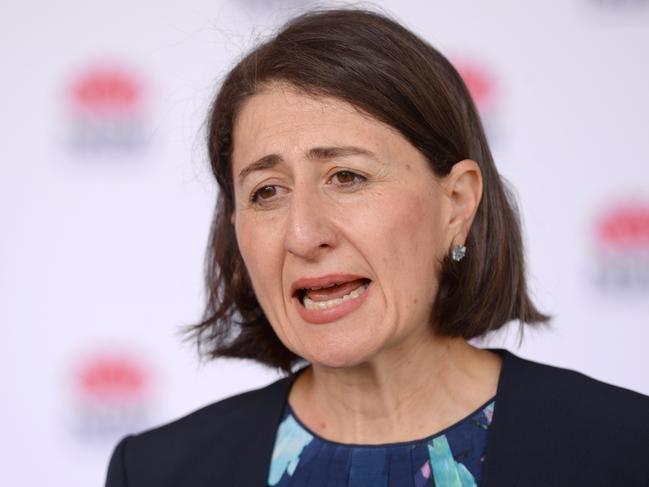
With NSW welcoming more returning travellers each week than any other state or territory, federal Health Minister Greg Hunt said eliminating “any threat” of COVID-19 entering Australia would be to close the borders and halt WA’s exports of iron ore. “You won’t be able to have true eradication unless you close international, not state borders,” he said.
Ms Berejiklian on Monday said national cabinet had agreed to the “logical” aim to reach no local transmission, because government’s could not stop Australians returning from overseas bringing COVID with them into the quarantine system.
Before national cabinet agreed to reduce the weekly cap on arrivals last week, NSW was taking in about 350 returning travellers each day.
As at the end of October last year, costs for the NSW hotel quarantine program totalled almost $345 million, with other states and territories expected to contribute about 38 per cent of that.
Data provided early in the pandemic revealed just over 14 per cent of people who had flown into NSW from overseas were from Queensland. Victorians accounted for almost 12 per cent of travellers, while WA residents made up almost 4 per cent of international travellers flying into NSW before the end of May last year.
Ms Styles, who is about to leave the Adina Apartments with her family said their stay had been “seamless”.
“I really cannot fault it, from the minute we stepped off the plane to the minute we came up to our room,” she said.
More Coverage
